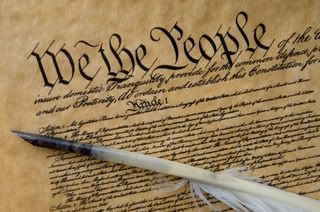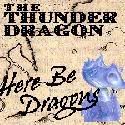 As the news informs us that MPs have decided not to allow us a democratic vote on the Lisbon Treaty...
As the news informs us that MPs have decided not to allow us a democratic vote on the Lisbon Treaty...
Referendums and Democracy
Referendums are a form of direct democracy, whereby we the people answer a yes-or-no question on a subject of importance. In some countries, such as Switzerland, referendums are standard events. In others, such as here in the UK, they really aren't. After all, we have had only one referendum ever. Which just happened to be on entry to what is now the EU.
Referendums are important events, no matter how often they are carried out, and just become even more important the rarer they are. After all, the last referendum decided that we would be members of the Common Market, which has become the EU without we the people getting another vote. Even though the last vote was held a decade before I was even born.





































